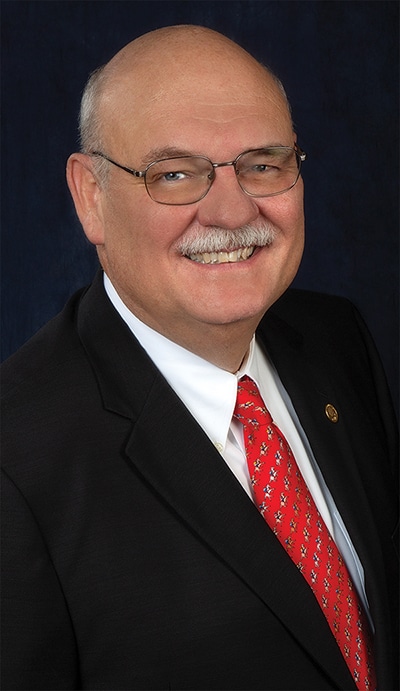Patrick Godbey, MD
March 2020—It is important to understand that we—those of us who work in the U.S.—are all essentially independent contractors for the federal government. Pathologists who work directly for a federal agency or the Department of Defense are the only exception.

Dr. Godbey
The federal government has enormous influence on funding and reimbursement in health care. Including direct and indirect spending, about 50 cents of each health care dollar comes from Washington. So if you are a pathologist practicing in the U.S., the federal government has a significant role in whether and how much you get paid. (Through its regulations, it also has tremendous influence on where and how you practice, but I’ll get to that in another column.)
The involvement of the federal government in dictating pathologists’ income begins early—much earlier than most are aware. Almost every resident’s salary in this country is paid with funding from Medicare. If you ask residents about this, as I often do, they usually believe their salary originates with their health care institution. But the vast majority of that money actually comes from the federal government. According to government estimates, for each full-time resident, Medicare contributes an average of $40,000 in direct graduate medical education and about $100,000 in indirect medical education funding. The numbers from 2015 put Medicare’s total annual contribution for graduate medical education at $10.3 billion. Medicaid paid $2.4 billion and Veterans Affairs paid $1.5 billion. The protection of this funding is just one reason why pathologists in academic practice should be active in the CAP. There are people in Washington who have challenged this funding.
Even in the earliest stages of a pathology career, it is worth paying attention to the federal government. The best way to do that is by participating in the CAP Residents Forum. The chair of that group is a voting member of the CAP Board of Governors, ensuring that the perspective of residents is considered as we set our priorities and plan our strategies.
Of course, the influence of the federal government on how much pathologists earn for their important services becomes more noticeable after residency. Medicare and Medicaid payments are significant sources of income for most pathology practices, so the reimbursement rates set by the government have an enormous impact on our financial situation. Private payers use those reimbursement rates as part of the calculations they make to determine their coverage levels. Very little of your compensation is not affected by the people in DC.
 CAP TODAY Pathology/Laboratory Medicine/Laboratory Management
CAP TODAY Pathology/Laboratory Medicine/Laboratory Management
